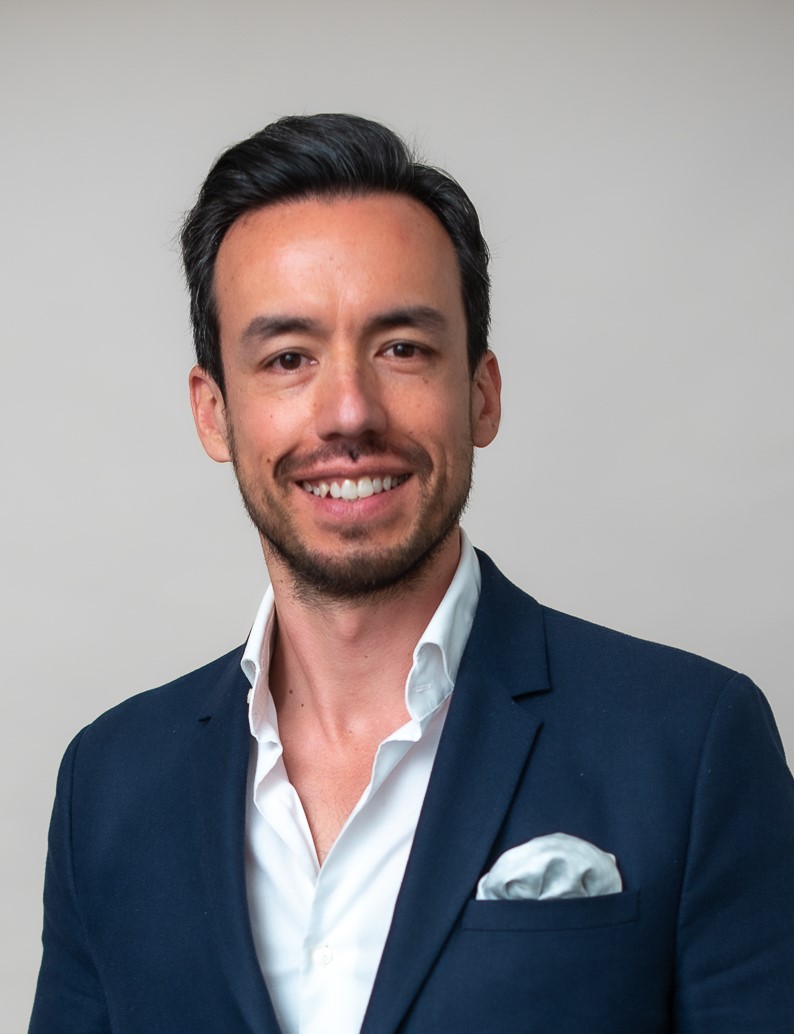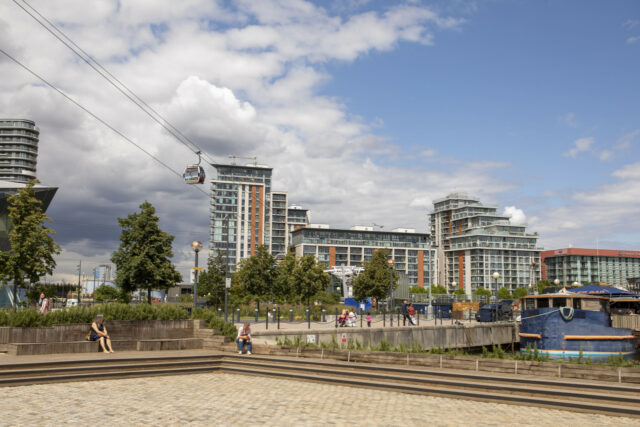Gresham House, one of London’s oldest asset managers, is betting big on vertical farming. Peter Bachmann, its head of sustainable infrastructure, believes this high-tech agriculture is at a “breakthrough point”.

CV
- Managing Director, Sustainable Infrastructure, Gresham House, 2020-present
- Director, Scottish Equity Partners, 2014-19
- Founder, Environmental Infrastructure Development Company, 2011-15
- Partner, Secondary Market Infrastructure Fund/Semperian, 2005-10
- Various sustainable infrastructure roles, 2001-10
- University of Adelaide, Commerce, Finance, and Law degrees, 1996-2003
Bachmann has a vision. “If you find the solution to a problem, then you are going to be richly rewarded. And, as the world wakes up to the climate and biodiversity crises, if anything this is likely to only increase in the future.”
Bachmann joined Gresham House last year. Since its foundation in 1857, the AIM-listed firm has become a specialist alternative asset management group, managing some £5.4bn of assets, mainly in sustainable infrastructure, with a preference for private equity and sometimes private debt.
Gresham House’s involvement in vertical farming through Fischer Farms very much meets Bachmann’s aspiration to fund transformative technologies. Vertical farming is the process of growing plants indoors under controlled conditions in a series of stacked layers.
According to PitchBook, investors poured nearly $1bn into indoor farming companies in 2020, more than twice what they invested the year before.

“The future of farming”
“Farming is incredibly resource-intensive,” says Bachmann. “The damage it is doing to the planet is enormous. We need a different direction of travel.” He firmly believes “vertical farming is at a breakthrough point.”
Take Fischer Farms. This British vertical farming business, which is backed by Gresham House, is building the largest vertical farm in the world in Norfolk, England.
The new farm will have enough growing space to supply 6.5 tonnes of leafy salad (such as rocket and lettuce), leafy herbs such as basil and other fresh produce to UK supermarkets every day, according to The Grocer.
For Bachmann, this form of high-tech agriculture is the future. The Norfolk farm will offer the equivalent of 1,000 to 2,000 acres of production from just four acres. Apart from this land-use efficiency, “98% less water will be used, and food miles will be hugely reduced,” he says.
The crucial breakthrough is in cost. “Some existing vertical farmers produce at a cost of something like £70 (€84) a kilo which simply cannot compete with existing field-based farming costs of £2 to £10 a kilo.” Fischer will eliminate this disadvantage and “the big UK retailers are blown away.”
Bachmann says that in reducing costs there have been many more levers to pull. In the last two years they have been experimenting with changes in temperature, lights, acidity, seedstock, the amount of nutrients…. an almost infinite level of variables.
“We have spent a lot of time getting the recipe right,” Bachman notes. One crucial aspect in consequence of this is that “the shelf life of our produce has been noticeably extended, anything up to 10 to 14 days which significantly reduces waste.”
Criticism
In the past, vertical farming has come in for a lot of criticism because of its very high energy use. Bachmann admits energy is 70% of the costs. Energy at the new facility in Norfolk will come directly from one of the UK’s many large offshore wind farms.
Bachmann also says, “technical changes are accelerating. Lights are becoming cheaper and more energy-efficient.”
Indeed, “given the pace of technological change year on year, I believe there is long-term potential to expand away from just growing ‘greens’ to rice, soy, and wheat. This is very important. Hugely so. Eventually, we will feed the world.”
Bachmann says now that this breakthrough has been made, “my ambition is to build as many of these plants as possible. We can’t keep doing things the way we are. We have to re-imagine things. We need real physical assets to do this. That’s where the real impact will come from.”
Sustainable infra: a new asset class
On this note, Bachmann says he wants investors to throw away “an outdated concept of infrastructure investment” and embrace what he calls “the most important new asset class.”
In the past “investors believed impact was at the cost of financial returns, but I believe this is different now. In my view, in the infrastructure space, impact drives financial returns.”
Bachmann grew up being “very particular about reusing things – even now my wife complains because clothes are repaired over and over again.” Fifteen years ago, he was a key investor in solar and wind energy “but I soon realised there was huge potential to go further.”
“Renewables are great, but they are a relatively small part of the solution. Energy is only 25% of global greenhouse gas emissions. We need to focus on the other 75%,” the investor says.
He became interested in investments that had a broader impact, something he followed up with a series of personal investments in early stage sustainability-focussed companies.”
As examples, he mentions Woolf – an educational business that is aiming to democratise education – and My Wardrobe, a fashion rental business. “I am personally very focused on companies that are trying to find new solutions to our problems.”
Bachmann believes sustainable infrastructure investors must not “simply greenwash existing assets but build new ones, and look at the whole carbon life cycle of any investment.” Hence the Norfolk farm.
Broader strategy
This all fits into Bachmann’s broader strategy at Gresham House, which has six target sectors: decarbonisation, digital inclusion (facilitating remote health and remote working), resource efficiency, waste solutions, health & education, and nature-based solutions.
Bachmann gets excited when talking about various companies within these priorities and where he has made significant investments. Take for instance Waste Knot: “This is a simply wonderful, innovative, solution. It turns a problem into a benefit – fuel pellets which directly replace coal.”
Likewise, in the health and education sector “we’re exploring investments that provide specialised forms of dementia care; work the state seems incapable of doing.”
Gresham House has two flagship impact funds (British Sustainable Infrastructure Funds) BSIF1 and BSIF2. The first has £300m in investments, the second £100 million, but Bachmann says he is “targeting to eventually have £500mn in that vehicle.”
In addition, Gresham runs two locally focused co-investment vehicles with local UK authorities, each valued at £20mn. One is with Greater Manchester, and one is with the West Midlands region. A characteristic of Gresham House is its strong relationship with local authorities. Seven invest in BSIF1.
“Local authority pension funds are particularly attracted by the good financial returns – our targets are a net IRR of 10% and a cash yield of 5%. And also by our detailed impact measurement, which itemises the jobs created and even counts the number of birds and insects delivered by ‘regeneration investments.’”





